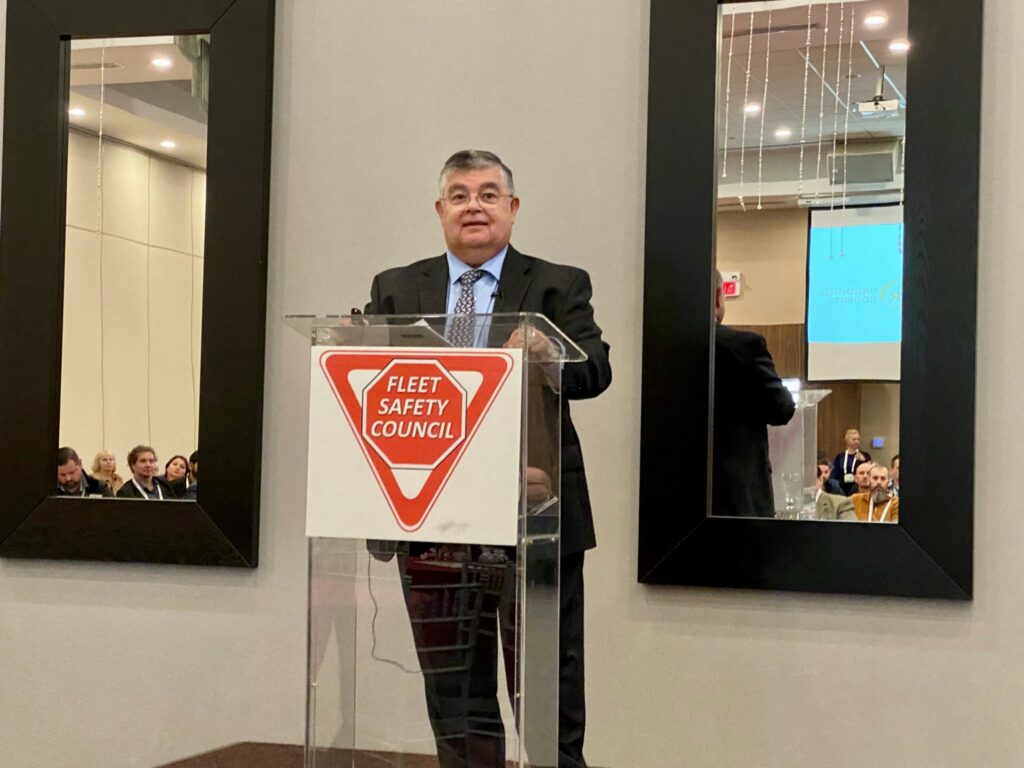Canadian carriers sending trucks into the U.S. are one incident away from a nuclear verdict. The dilemma they face is having too little insurance that could shut a company down or too much insurance, thus painting a target on their backs.
A nuclear verdict is defined as an award by a jury in excess of US$10 million. Rui Fernandes from Gardiner Roberts LLP likes to call it whatever verdict that is in excess of your insurance and can destroy your company.
The transportation lawyer told attendees at Fleet Safety Council’s annual conference in Brampton, Ont., on Oct. 14 that carriers must pay attention to best practices and not cut corners on insurance.

Fernandes also told fleets to perform due diligence to identify and minimize corporate risks, by spending time and money to put policies in place.
Carriers must pay attention to their ESG (environmental, social and governance) report card that is becoming popular with customers and investors. If the fleet does not meet expectations, it could lose business and investment needed for growth.
Social policies – how a business treats and values people – are in the limelight. Carriers must pay attention to diversity and inclusion; safe and healthy working conditions; guarantee fair wages; and have relationships with local communities.
It is important to have policies checked by the fleet’s broker and insurer who sometimes may not insure certain things. Indemnity clauses must be carefully reviewed, Fernandes warned. It is better to pay a lawyer to check it out before signing, he advised, saying that it usually costs a lot more when issues arise.
He urged fleets to review policies regularly as laws change. The clauses that must be monitored include indemnity, limitation of liability, liability, termination, and penalty. He said part of a policy should be that a contract is not signed until it is analyzed and reviewed.
Fernandes advised carriers to rearrange corporate structure to meet risks. He urged separate ownerships for each company and estate planning.
As an example, he said if a company owned equipment, a warehouse and land, they should be held separately. Trying to split up a company later has tax consequences, he warned.
As transport companies add more technology and move into the digital world, cybersecurity is vital. “Make sure you don’t get hacked,” Fernandes said. Fleets should have control procedures in place that include access management, physical infrastructure, an incident response plan and communication plan.
The lawyer said carriers must always be prepared for the worst. “Do it now, don’t wait until something bad happens – it always does.”